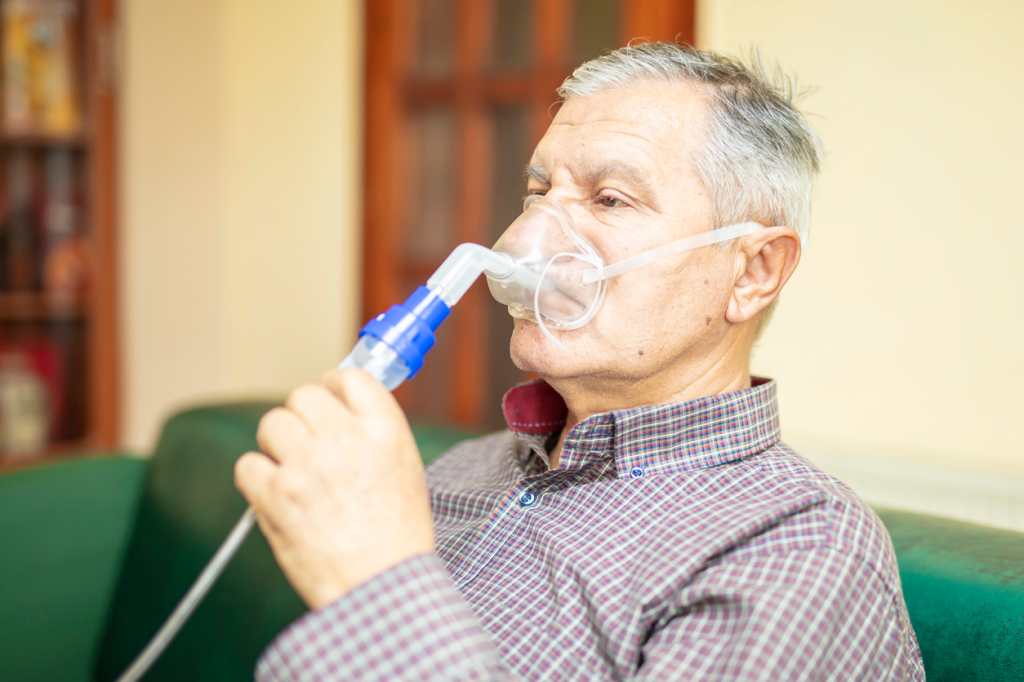The respiratory syncytial virus (RSV) present in Guatemala can cause serious consequences such as bronchiolitis, pneumonia, and even hospitalizations in children and adults.
It is important to understand what respiratory syncytial virus (RSV) is, which causes infections in the respiratory system, especially in the lungs.
In early August, it was reported that the pediatric wards of Roosevelt and General San Juan de Dios hospitals were experiencing full emergency rooms and saturated bed capacity due to the increase in patients with respiratory syncytial virus. Cases of Covid-19 and dengue were also reported.
Dr. Kirk Emerson Vásquez, interim head of the Pediatric Internal Services Section at San Juan de Dios General Hospital, reported that there has been an increase in patients with respiratory illnesses, as evidenced by visits to the Emergency Room and hospital admissions.
But what is this virus and how could it affect us? Experts are talking about it.
What is respiratory syncytial virus?
RSV is common and causes mild cold-like symptoms; however, it can also cause serious consequences, such as bronchiolitis and pneumonia, in high-risk populations.
It is estimated that 64 million people suffer from it each year, globally, and nearly 160,000 die from this virus.
What causes respiratory syncytial virus?
Usually, with the beginning of the rainy season or winter in the countries, RSV tends to be the main cause of lower respiratory tract infections (LRTI) in children under five years of age, with emphasis on the first six to 12 months of life.
For this reason, children under two years of age, people with chronic conditions such as heart or lung disease, individuals with a weakened immune system, and adults aged 65 years or older are more likely to suffer serious infections or even hospitalization.
The incubation period is four to six days after becoming infected. People may become contagious one to two days before they begin to show signs of illness.

How respiratory syncytial virus is detected
“This virus can infect children and adults several times, so, in those people with a higher risk of complications, it is important to be alert to signs such as fever, difficulty breathing, wheezing (a high-pitched whistling sound when taking air), and a bluish color on the skin, to go to the doctor immediately for care,” said Dr. Monique Baudrit, medical director of Pfizer Central America and the Caribbean (CAC).
Other symptoms include dry cough, runny or stuffy nose, sore throat and headache, and sneezing. In very young babies, irritability, difficulty breathing, and unusual tiredness or decreased activity are common.
How respiratory syncytial virus is spread
RSV is spread through the air by coughing and sneezing, as well as by direct contact with a person, surface, or object that has the virus on it. Doctors suggest washing your hands frequently with soap and water, staying home when you are sick, and avoiding touching your face, mouth, or nose without washing your hands to reduce the risk of catching or spreading RSV.
Treatment for respiratory syncytial virus
Most RSV infections go away on their own within one to two weeks and there is no specific treatment for them; however, your doctor may prescribe medication to improve symptoms. Drinking plenty of fluids is also recommended to prevent dehydration.
Those who develop complications such as pneumonia (lung infection), bronchiolitis (inflammation of the small airways in the lung), asthma, and middle ear infection – mostly in infants or young children – may require laboratory tests, x-rays, and a medical evaluation to determine the best course of action to help the patient improve.

Preventive measures
In terms of RSV prevention, it is also important to clean and disinfect surfaces that are constantly touched, not share utensils or other items if you are sick, cover your mouth and nose when coughing, use a mask in case of symptoms of a respiratory infection, wash children’s toys regularly, limit exposure to crowds and always consult a doctor.
Recommendations
There is no vaccine against RSV, but children must be up to date with their vaccination schedule, which includes doses against pneumococcus and influenza, which should be available in public health services. It is important to remember that breastfeeding helps protect against infections.
Likewise, it is important for patients with health conditions to have regular check-ups and keep up to date with their treatments, as well as to follow their doctors’ recommendations.
In general, for adults, healthy habits are positive for strengthening the body. Nutrition is a key point. There is no single food that strengthens the immune system, everything is based on healthy eating habits, and a varied diet, in quantity and quality that provides the necessary nutrients for optimal health and nutrition.
Consuming fruits and vegetables to ensure adequate intake of micronutrients (vitamins and minerals) helps strengthen the immune system.























+ There are no comments
Add yours